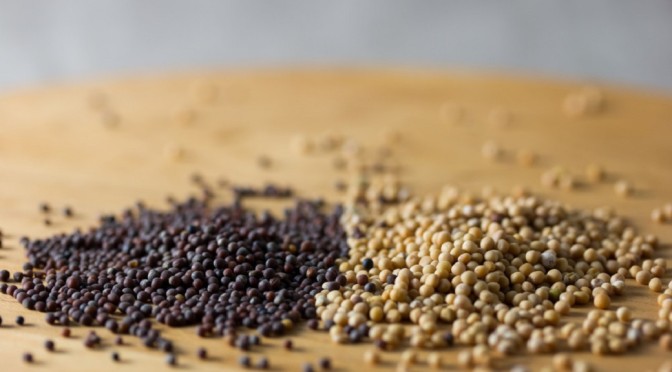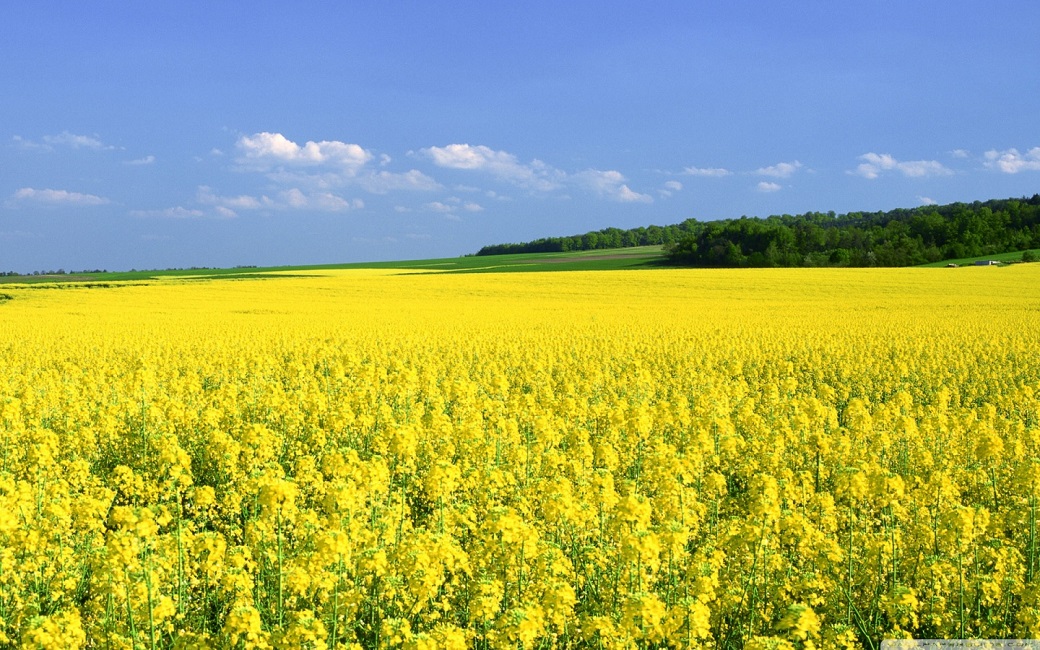From Mrs. Cog's Corner
The content on this page is for discussion purposes relating to health and well being only and is not intended to be medical advice. Links and sources provided are for informational purposes and do not represent an endorsement of a person, product or treatment.
...try the mustard, a man can't know what turnips are in perfection without mustard. Mark Twain - The Gilded Age
Ah mustard, often known in America as a yellow condiment to squish onto a hot dog at the ball park or summer barbeque. Occasionally, perhaps we indulge in a dollop of spicy brown mustard on a good German bratwurst or Polish kielbasa, maybe a good pastrami sandwich.
Mustard, in the form you probably know it, is made from crushed mustard seeds combined with liquids that create a chemical reaction producing an array of flavors. Mustard seeds are used in pickling as a tasty part of the preserving process. Other common parts of the plant used include young mustard greens which make wonderful tangy salads and mature leaves often stewed and served with grilled meat or fish on top or added to soups. The pretty yellow flowers are used as garnishes and can be eaten in a prepared mustard spread.
Like many real foods, mustard has great natural healing and nutritional benefits and can be found referenced throughout history. Mustard seeds are mentioned in the Old Testament, used by Pythagoras and later Hippocrates and even found in abundance in King Tut’s tomb. It appears the amazing properties of mustard are only a mystery to us modern folks. :-)
Mustard is a potent medicinal plant. Containing high amounts of magnesium and selenium, mustard seeds have been used for thousands of years to reduce the inflammation of rheumatoid arthritis. The same are also effective in controlling asthma and combating chest congestion. The phyto-nutrients in mustard seeds are so potent that not only are they considered a digestive aid but modern studies have shown mustard attacks gastro-intestinal cancer cells and prevents their growth.
There are several important points about mustard I would like to highlight. Mustard can be grown quickly and easily. This means during growing seasons shortened by drought or unusual temperatures, there is time to harvest, preserve and gather seeds in 60 days. In addition, the plant is prolific and will easily reproduce, sowing its own seeds if let to do so. Mustard is popular on the list of wild foods to forage, as it grows in abundance on its own throughout the world and North America. The versatility and ease with which mustard grows makes this an invaluable addition to consider for your pantry and seed collection.
More information about growing and preparing mustard:
Amazing benefits of Mustard Seeds
10 Healthy Reasons You Should Include Mustard In Your Diet
Mustard Manual: Your Guide to Mustard Varieties
Mustard Wild, Tender and Tough


